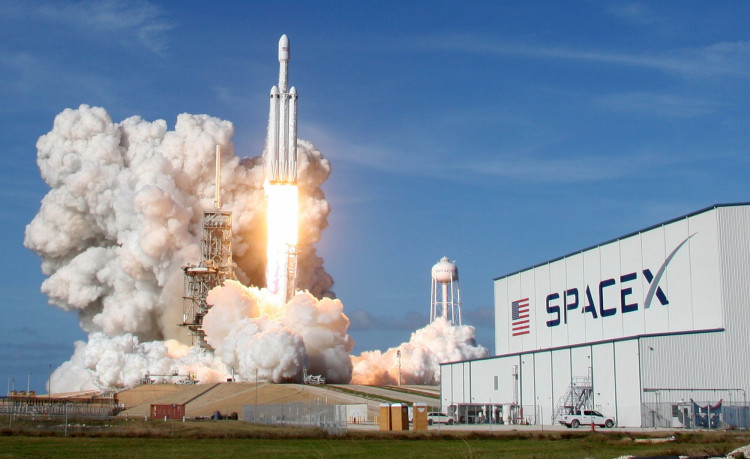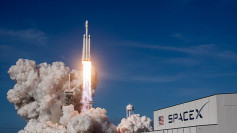In the midst of Russia's ongoing invasion of Ukraine, SpaceX founder and CEO Elon Musk announced that his company is now working on cyber defense and overcoming signal jamming of its Starlink internet satellites.
After the Russian invasion crippled internet connectivity across the country, Musk and SpaceX supplied Starlink terminals to Ukraine at the request of a government official. By Monday (Feb. 28), a shipment of Starlink ground terminals had arrived in Ukraine, which utilizes an antenna and terminal to access the satellite internet service. SpaceX is aiming to keep the terminals online while they are in use, Musk said.
"Some Starlink terminals near conflict areas were being jammed for several hours at a time," Musk wrote in a Twitter statement Friday (Mar. 1). "Our latest software update bypasses the jamming."
Musk then said that SpaceX is devoting its focus to ensuring the continuity of its Starlink service in Ukraine and, most likely, elsewhere.
"SpaceX reprioritized to cyber defense & overcoming signal jamming," he wrote Friday. Musk quipped that the measures were a bit of unexpected quality assurance work for the Starlink system.
"Slight delays in Starship & Starlink V2" will be caused by the Starlink work, Musk added.
SpaceX's Starship is a massive reusable spacecraft that will launch trips into deep orbit using a massive reusable launcher named Super Heavy. NASA's Artemis program has chosen the Starship vehicle to land men on the moon.
In the coming months, SpaceX hopes to launch the first uncrewed Starship orbital voyage. SpaceX's Starlink V2 system is the company's next-generation Starlink system, which features laser links between satellites and other upgrades.
SpaceX sent its latest batch of Starlink satellites into orbit aboard a Falcon 9 rocket on Thursday (Mar. 3). That mission sent 47 additional Starlink satellites into orbit from NASA's Kennedy Space Center's Pad 39A. SpaceX has launched nearly 2,000 satellites into orbit to date, with ambitions for an initial megaconstellation of 12,000 spacecraft to provide global broadband access.
Meanwhile, Russia has launched 600 missiles since the start of its invasion of Ukraine, according to a senior U.S. defense official, and it has committed nearly 95% of its fighting power within Ukraine.
According to the official, the U.S. saw continued fighting in Kherson and Mykolaiv on Sunday, and Russian forces are still attempting to encircle Kyiv, Khakhiv, Chernihiv, and Mariupol.
The Russian attack has been slowed by robust Ukrainian opposition to the Russian advances.
Meanwhile, the large Russian convoy north of Kyiv, which covers 40 miles of road, is still stuck, with no indication of how far it is from Kyiv. It was about 16 miles (25 kilometers) from Kyiv's city center late last week.
The skies over Kyiv are still contested, and both Ukrainians and Russians retain a large portion of their air combat capability.



